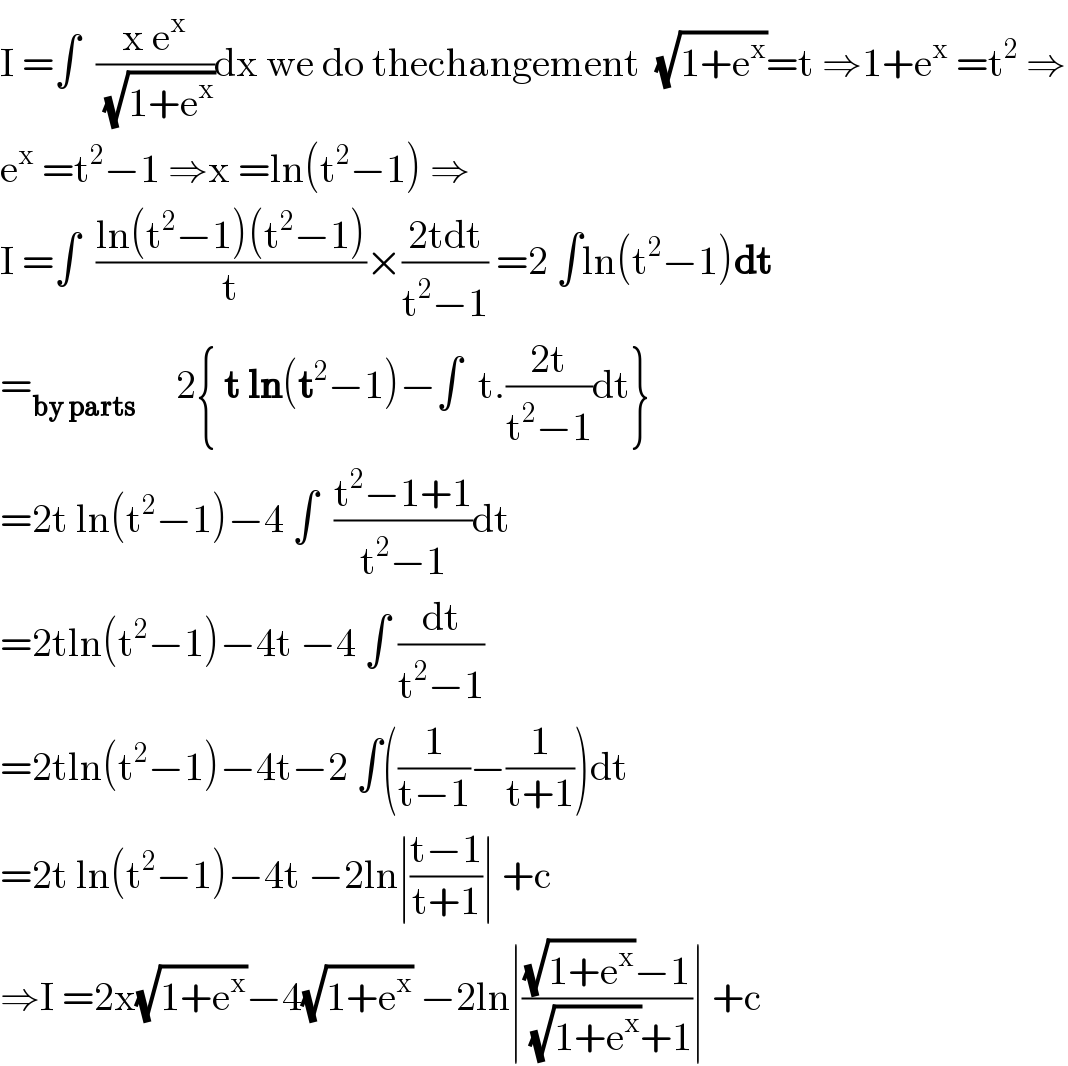
Question and Answers Forum
Question Number 116385 by bemath last updated on 03/Oct/20

Answered by MJS_new last updated on 03/Oct/20
![∫((e^x x)/( (√(e^x +1))))dx= [t=(√(e^x +1)) → dx=((2(√(e^x +1)))/e^x )] =2∫ln (t^2 −1) dt=2∫ln (t−1) dt+2∫ln (t+1) dt= =2((t−1)ln (t−1) −t)+2((t+1)ln (t+1) −t)= =2tln (t^2 −1) +2ln ((t+1)/(t−1)) −4t= =2(x−2)(√(e^x +1))+2ln (e^x +2+2(√(e^x +1))) −2x+C](Q116387.png)
Answered by Dwaipayan Shikari last updated on 03/Oct/20

Commented by MJS_new last updated on 03/Oct/20

Commented by Dwaipayan Shikari last updated on 03/Oct/20

Answered by mathmax by abdo last updated on 03/Oct/20

